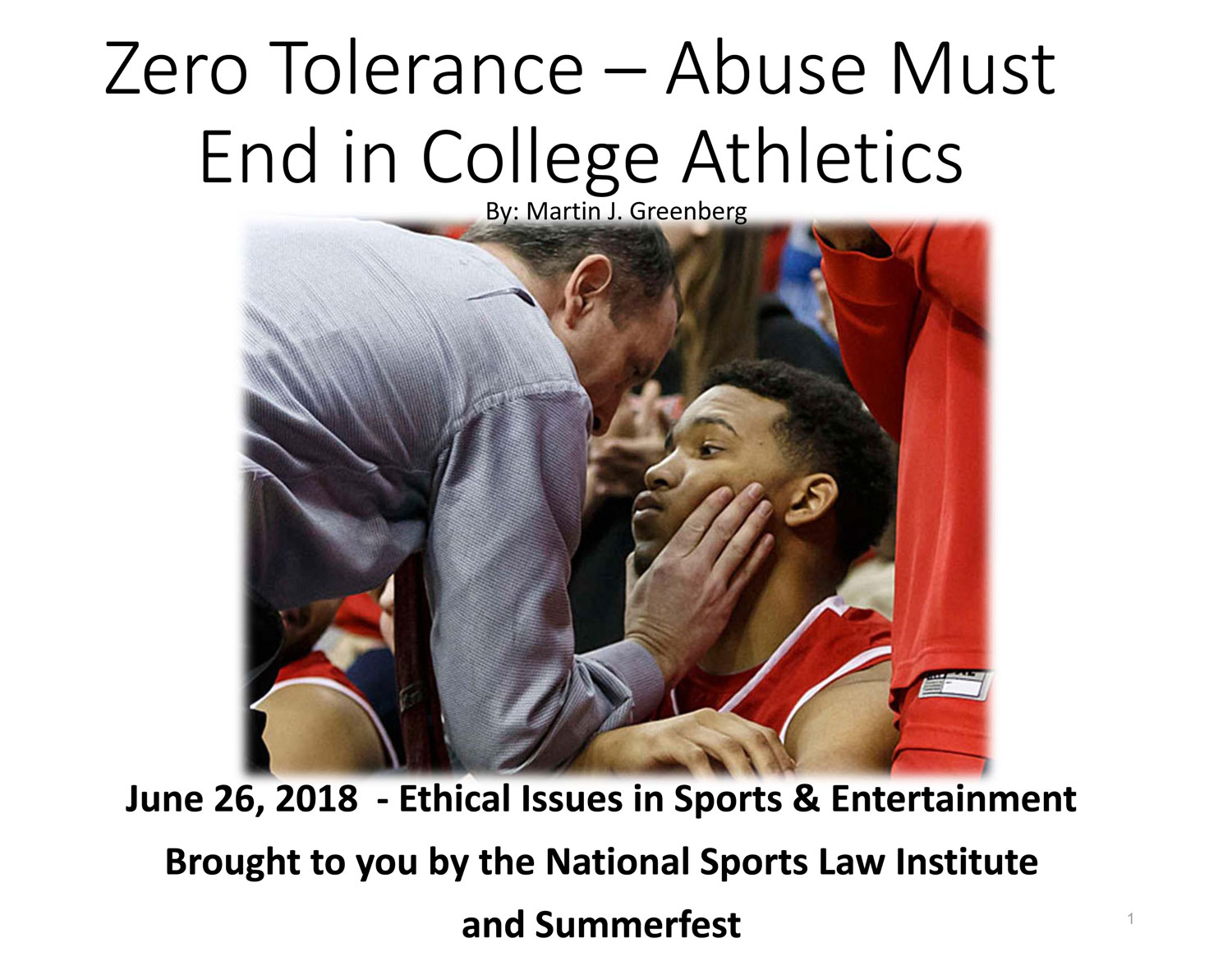June 26, 2018 – Ethical Issues in Sports & Entertainment Brought to you by the National Sports Law Institute and Summerfest. Click the image below to view the slides from


June 26, 2018 – Ethical Issues in Sports & Entertainment Brought to you by the National Sports Law Institute and Summerfest. Click the image below to view the slides from
College coaches' contracts for public institutions, unless limited by some state law exception, are open to the public for review. By making an open records request, universities will provide copies of coaches' contracts and any amendments thereto. From a review of the coach's contract and what is reported by the coach to the university with respect to athletically related income, plus a determination as to whether bonuses prescribed were achieved, one could come to a fairly good understanding of what a coach's total compensation package approximates.
Badger Nation, its administrators, players and fans, were shocked by the sudden resignation of Bret Bielema as head football coach of the University of Wisconsin. Bielema was hand-picked by his predecessor Barry Alvarez and compiled a 68-24 record (.739) in seven seasons, including three Big Ten titles. Bielema guided the Badgers to a bowl game in every season during his coaching tenure, and the team will be playing in the Rose Bowl for the third consecutive year after a lopsided 70-31 victory over Nebraska in the Big Ten Championship game. Speculation about why Bielema left Wisconsin for the University of Arkansas includes a more lucrative contract, a stronger conference, more money to hire assistants and a chance to win. As Al McGuire always would say, "Leave at the top of your game." Bielema's decision is representative of a business where turnover is commonplace, where long-term loyalty is not required and where the term of the contract is meaningless.
2011 was not a banner year for the University of Illinois football program. After starting with a 6-0 record, Illinois finished the season losing six straight games, making Illinois the first BCS team to open the regular season with six straight wins and closing with six straight losses. In November of 2011, acting athletic director Mike Thomas informed Ron Zook that he had been fired as head coach. Zook had five losing seasons at Illinois, finishing with an overall 34-51 record. Despite the end of the season losses and the firing of the head coach, Illinois was invited to the 2011 Kraft Fight Hunger Bowl and posted a 20-14 win over UCLA. The Illinois - UCLA contest was an interesting match-up since UCLA was given an NCAA waiver to compete despite a losing record, both schools fired their coaches, both schools were playing under interim leaders, and UCLA had four players ineligible for the game while Illinois had two players ineligible. But most noteworthy of all was a contentious legal and contract dispute between several of the Illinois assistant coaches (Joe Gilbert, Jeff Brohm and Chip Long) and the school administration.
On March 26, 2008, Matt Brady became the men’s basketball coach at James Madison University (JMU). He was formerly the head coach at Marist College, compiling a 73-50 record in four years. Marist is a private institution located in Poughkeepsie, New York. Brady was employed pursuant to a head coaching contract with Marist that was entered into on July 1, 2007 and was to expire on March 31, 2011. Brady’s contract contained two covenants with respect to termination of employment that are the subject of this article. In the first instance, Brady was precluded from entering into any employment discussions with any other collegiate or professional basketball program and from accepting a head coaching position with any program without the prior written consent of Marist. In addition, if Brady’s contract was ultimately terminated for any reason, including Brady accepting another coaching position pursuant to such written consent, Brady agreed to (1) return all basketball program records and files, (2) end any and all contact with Marist basketball program recruits, and (3) not offer a scholarship to current Marist basketball players nor any persons that he or his staff recruited to play basketball at Marist.